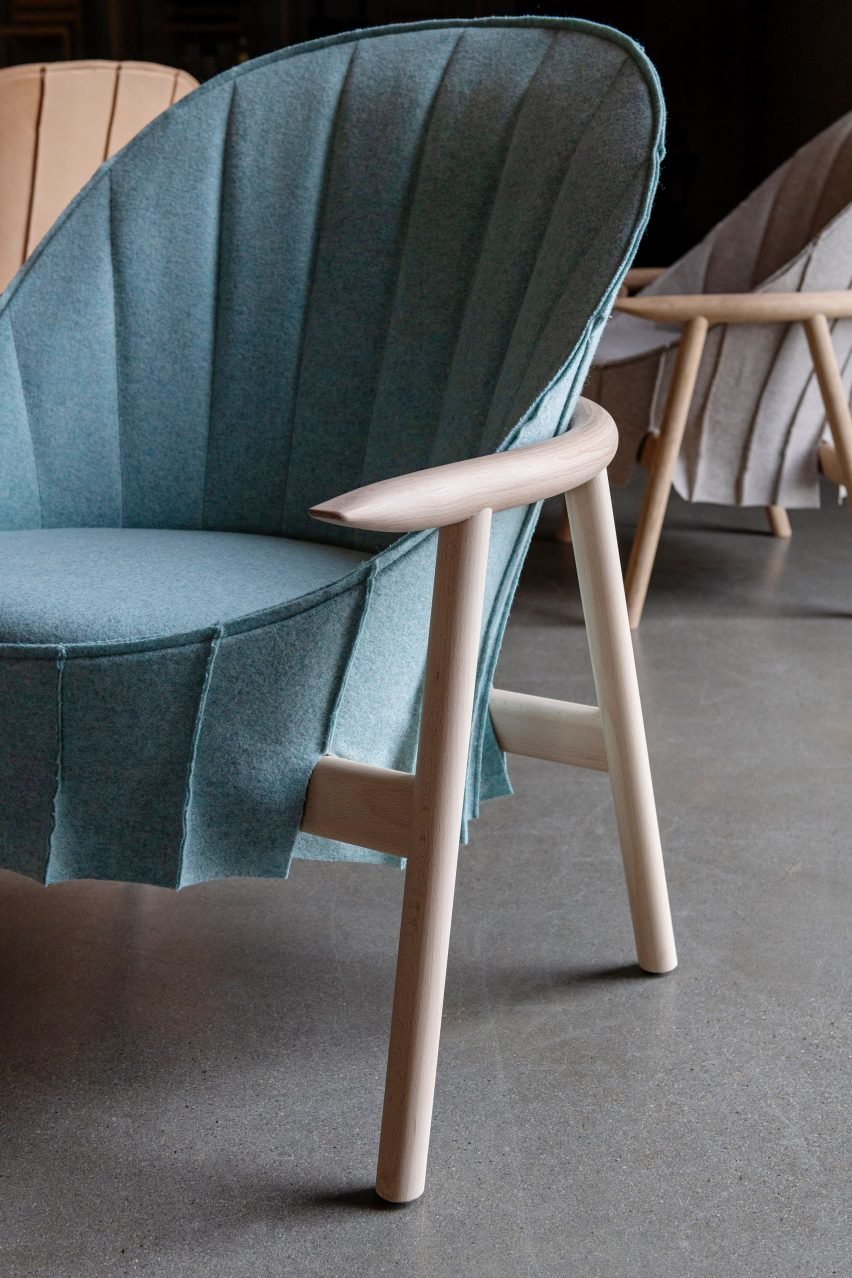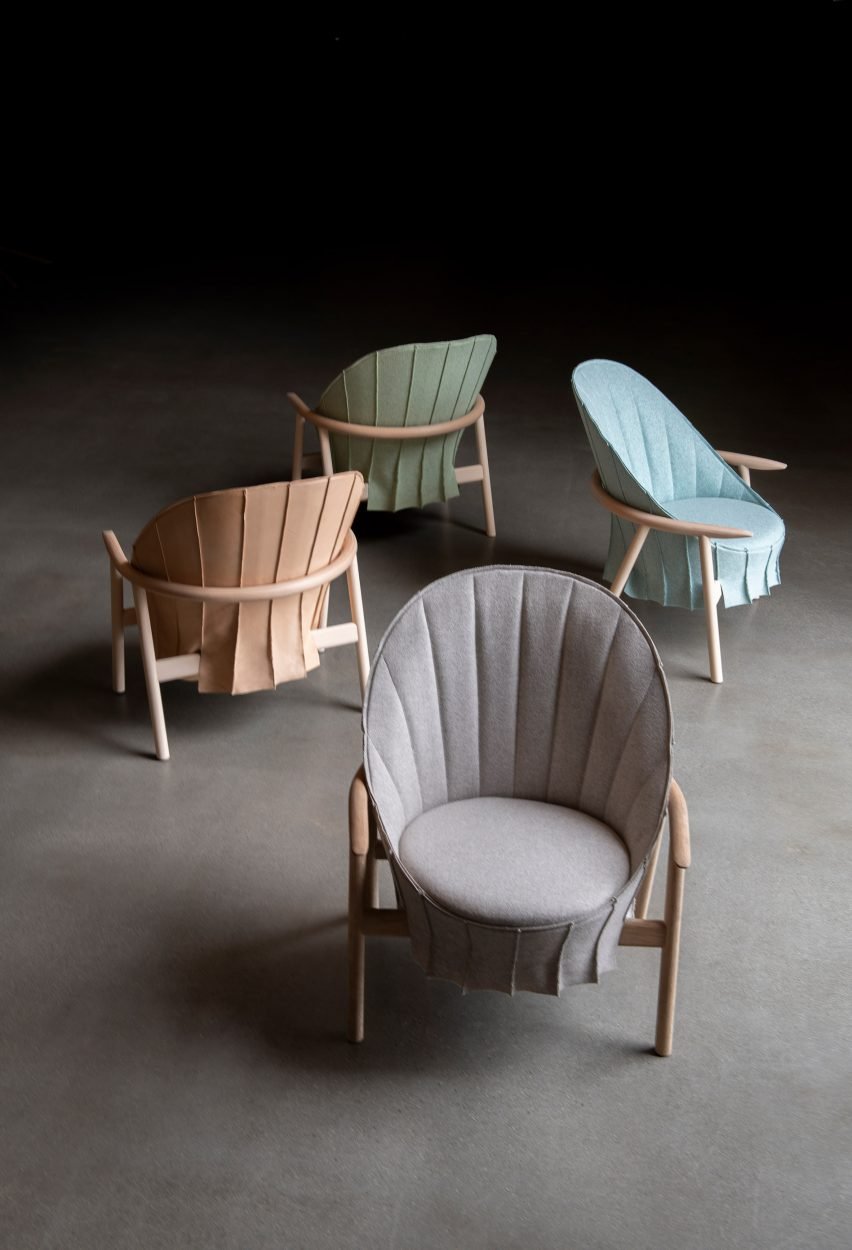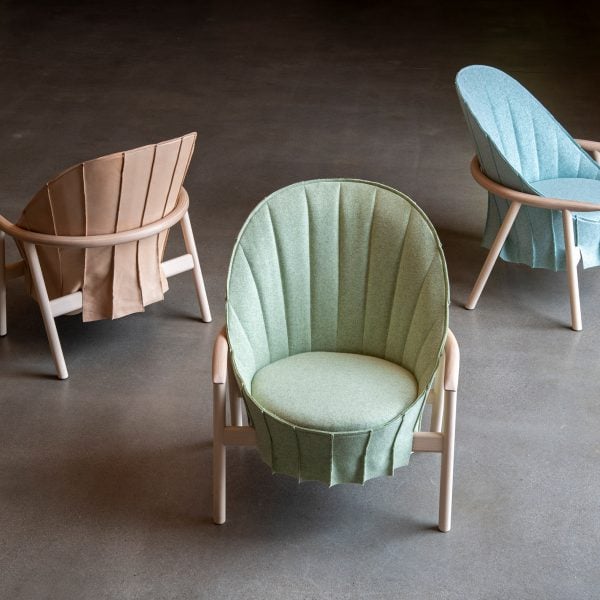Japanese architect Kengo Kuma has collaborated with Swedish furniture brand Gärsnäs on HidaHida, a fabric-clad easy chair that “communicates both Scandinavian and Japanese influences”.
The beech-wood chair, which can be covered in textile or leather, was designed to reference the tradition of wood craftsmanship that connects Japan and Scandinavia.
“We are proud to present a furniture design that communicates both Scandinavian and Japanese influences in its materials and form, with high quality, functionality and comfort,” said Gärsnäs CEO Dag Klockby.
“This is classical woodwork in combination with innovative upholstery techniques.”
The textile that covers the chair was left hanging below the seat, showcasing the draped design which gave HidaHida its name – hida means “to drape” in Japanese.
In a nod to architecture, the chair was designed as a “load-bearing wooden frame”, Gärsnäs said.
“The frame is architecturally distinct with a semi-circular wooden bow as a unifying element,” the brand added.

Its rounded frame was covered in either leather or a felt fabric by Japanese company Coad & Materials, which Gärsnäs said was of “special allure” to Kuma.
The hues chosen for the chair range from pale pastels, such as green and purple, to a bright orange shade for one of the leather covers.
By designing very pronounced seams for the textile covers, Gärsnäs and Kuma aimed to give the chair more character.
“It suits us at Gärsnäs to work with pure wooden shapes and upholstery components,” Klockby said.
“We have a lot of experience with felting materials and sophisticated sewing, for example through our collaboration with design duo Färg & Blanche.”

While Kuma is best known for his architecture, he has previously ventured into product design. Last year, he created accessories for fashion brand Fendi, including bags and trainers, made from washi paper and tree bark.
He has also designed 3D-printed sunglasses from castor beans and trainers for ASICS.
Kuma’s recent architecture projects include a Chinese clay museum cloaked in handmade tiles and Parisian housing with a pleated facade.

